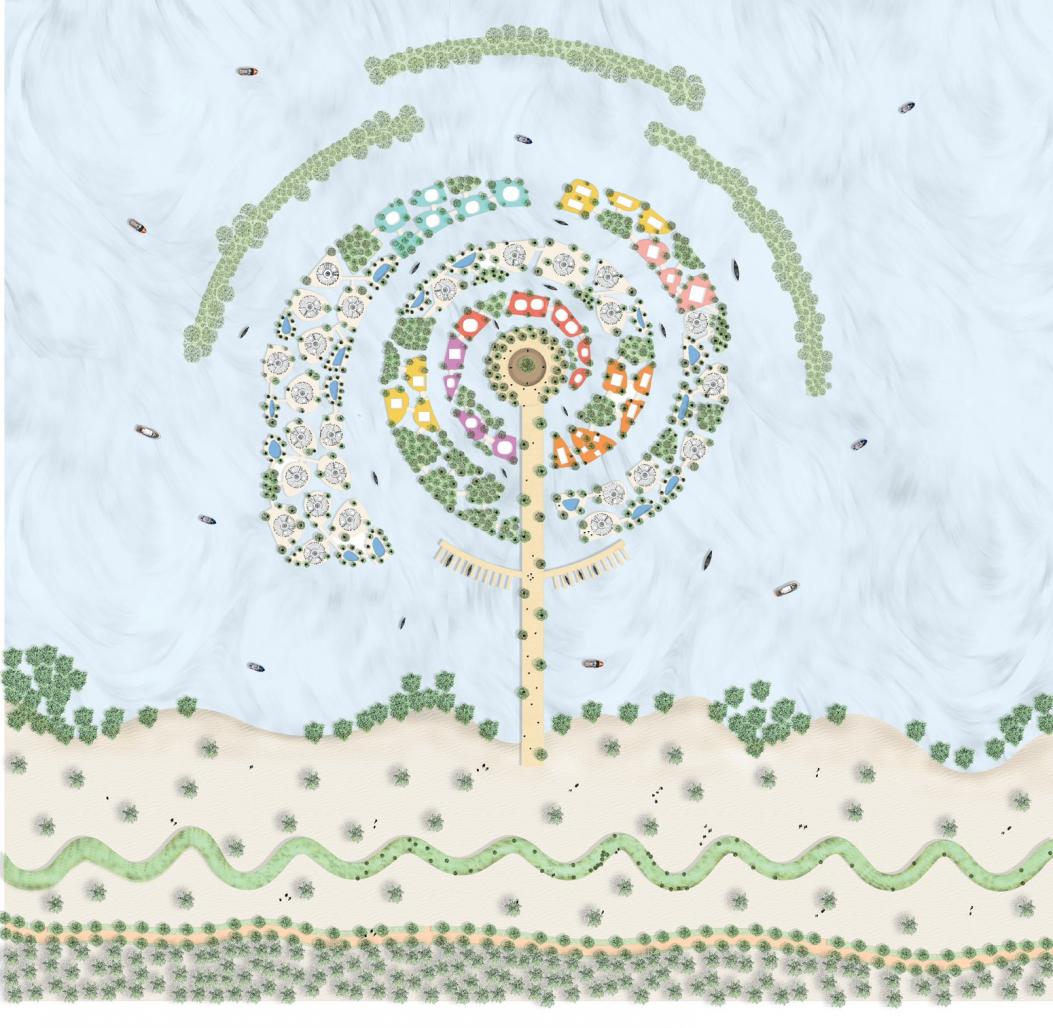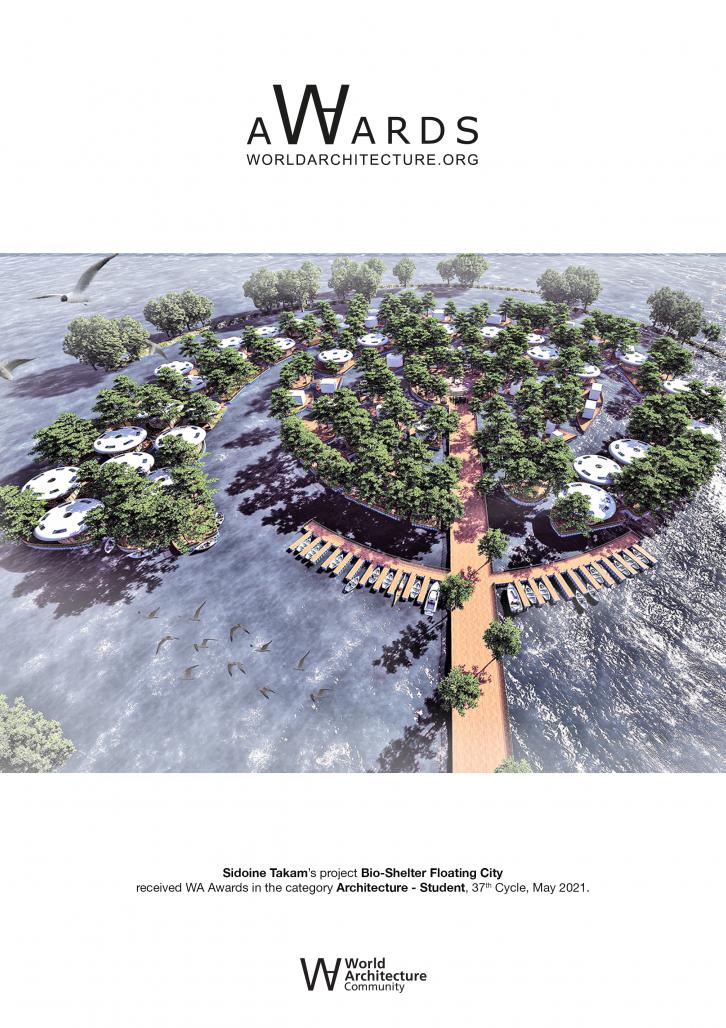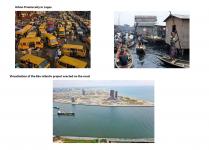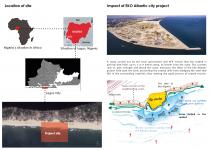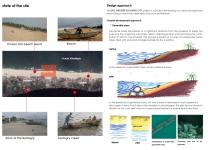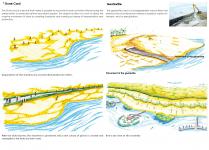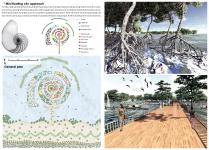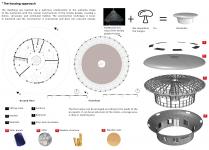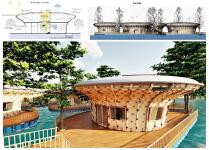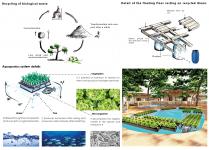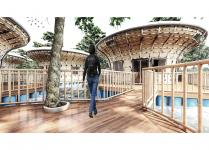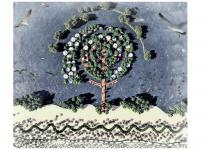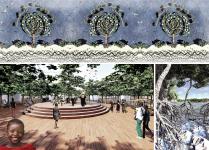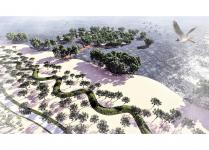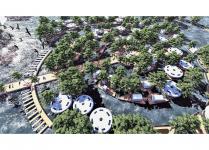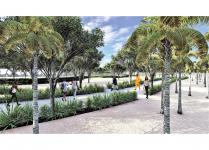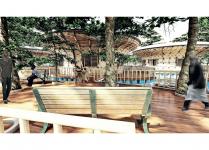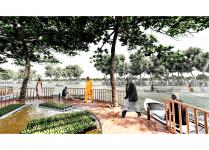The 21st century is a period that marks the history of humanity through major factors that influence the daily life of mankind, including global warming, population explosion, rising sea levels, etc....
Taking the case of sea level rise, the rise in temperatures in the lower layers of the atmosphere leads to an increase in sea level through several factors. On the one hand, the oceans are expanding (thermal expansion), oceans hotter, occupying a larger volume. On the other hand, mountain glaciers and the polar ice caps are melting, generating more fresh water to the ocean. Finally, the rising temperatures changes the hydrological cycle, which also affects the water supply. in water from continental reserves. This issue is of particular social importance since about 145 million people live near the coast, would be today directly affected. The sea level rise resulting from climate change at The future represents a risk of flooding for coastal regions.
However, Africa is hardly spared from these phenomena. Indeed, the Atlantic Ocean is advancing on the west coast of the continent by 1 to 4 metres per year, according to a report from the World Bank (WB, March 2019), destroying everything in its path. This is being felt on the coastlines of African countries such as the Nigerian coastline.
Lagos State is located in south-western Nigeria on the narrow, narrow and strip of flood plain in the Gulf of Benin. It is located on a flood plain characterised by flat terrain, its average altitude not exceeding 15 metres above sea level of sea level. Lagos is the second most populated city in the world. of Africa with about 22,829,561 million inhabitants, behind Cairo in Egypt. With an urbanisation rate high and constantly increasing, the city is subject to
many problems, including urban overcrowding exorbitant with a high lack of housing added to the above-mentioned problems. We also note the flight of the population from the coast to the interior of the country which
is already overcrowded and lacks the space for building; hence the need to explore other environments
like that of the marine environment.
In addition, the presence of the far-reaching project of Eko Atlantic (continuity project of the city of Lagos on an island artificial) has a direct impact on the coast of the surrounding communities in that its dikes do not stop pushing back the anger of the ocean elsewhere and to accentuate erosion from the coast to the neighbourhood.
In the face of all these problems, we will not have remained insensitive. Whose commitment to offer a project that meets the population's blatant and enormous needs.
The BIO-SHELTER FLOATING CITY project aims to restore unstable ecosystems in order to give to people the possibility of living in harmony with the environment. On the one hand we have effective redevelopment of the coastal dune in order to counteract the progress of the sea; and on the other hand to new perspectives to explore constructions on water via the proposal a floating mini city combining the traditional biomimetism and architecture of the Yoruba people. The project not only provides access to housing, but also gives access to basic services such as education, health, a park, workshops, a market, community spaces, etc. For
For greater sustainability of the project, we have provided aquaponics for food needs.
2020
0000
As far as the materials are concerned, the walls, false ceilings, as well as the interior and exterior circulation are made of wood. The structure is made of bamboo with a 15cm section. The foundation is floating and made of PVC drums recycled
The hull is made of ETFE which is a very light material, facilitating the passage of light. The different atriums are covered with a raised satin Plexiglas roof allowing the passage of air.
TAKAM KENMOGNE Sidoine Constant
MEKEMTA Jodel Bismarc
BIO-SHELTER FLOATING CITY by Sidoine TAKAM in Nigeria won the WA Award Cycle 37. Please find below the WA Award poster for this project.
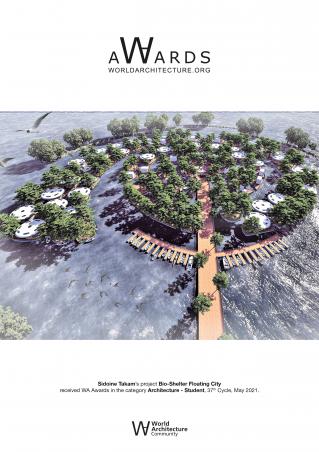
Downloaded 12 times.
Favorited 6 times
